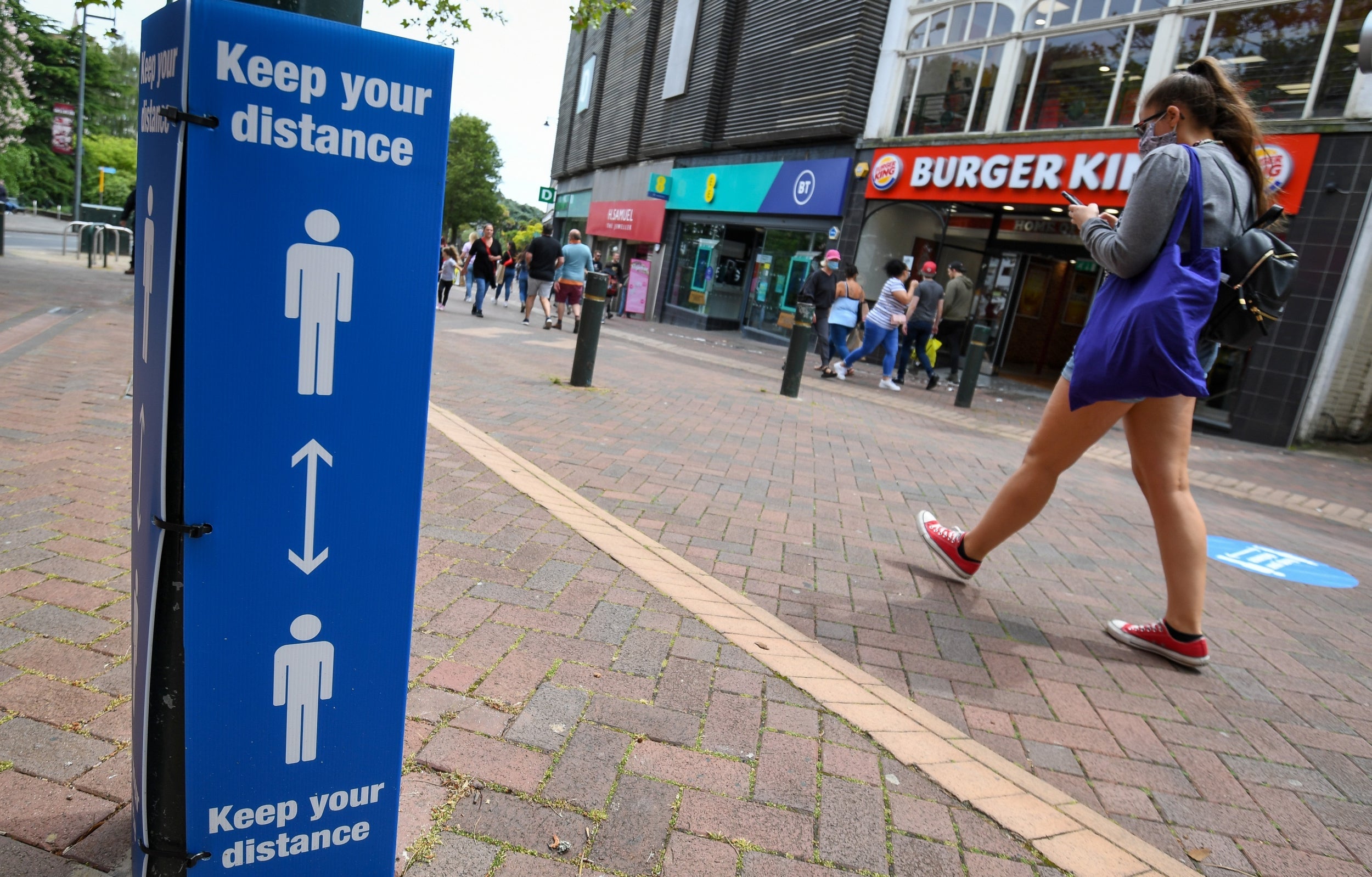What will the high street look like after coronavirus?
As shops start to reopen, James Moore looks at the future of our town centres as stores, restaurants and pubs struggle to survive


What are high streets going to look like at the end of the Covid-19 mess? I ask the question in the wake of a letter to Boris Johnson backed by 90 hospitality firms, saying that if social distancing remains they will need action on tax, rents and other support to keep the show on the road.
The letter was organised by Deliveroo and signed by various partner restaurants. Social distancing is, of course, already under review, as regards whether to stick with the 2m guideline that’s gumming up their works. Said review looks like cover. It’s almost certainly going to be dropped regardless of any scientific and/or medical advice.
In reality, it’s already gone the way of, I don’t know, decency in public life?
Non-essential shops have reopened, as have non-essential shopping centres, and when it comes to the latter, well, you can’t do distancing in a lift. But back to the first question.
With the shift of so much retail online, and the attendant reduction in the number of shops that was underway prior to the pandemic, there was a debate raging about how to revive the high street.
Making them destinations, where people can congregate and there’s stuff to do, was one of the potential solutions being advocated.
As the letter seeks to point out, many of those destinations are now in a parlous state financially.
They weren’t exactly firing on all cylinders prior to the pandemic, because neither was the UK economy.
Hence the plea to Boris Johnson, and the hope that he’ll prod his chancellor Riski Sunak to put his hand in his pocket again.
What’s going to be left if he doesn’t?
Let’s think about the chains. Britain currently has an abundance of them, and perhaps an overabundance.
While the consequences of the job losses that would flow from their demise aren’t pleasant to contemplate, these institutions are, let’s be honest, little loved.
You wouldn’t view the loss of your local Wagamama in the same way as you’d view the loss of your local family-run equivalent, where regulars get to know the proprietors and the people that work there.
Trouble is, as much as the chains are suffering, the independents are probably suffering more. They often lack reserves, they have no ability to access the funds available in the City. There are loan schemes the government has rolled out, but loans have to be paid back.
So, then, is the future of the high street one in which there’s a McDonald’s, a Starbucks, a Tesco Metro, and the last man standing among the bookies? If the way chains have contributed to making them clones of one another is depressing, how does that grab you?
It’s not easy to feel a lot of sympathy for restaurant chains. Some of them haven’t always treated their workers terribly well. Deliveroo refuses to concede that the riders it supplies to facilitate their deliveries are even employees. They are, instead, assumed to be self-employed contractors. And it has been fighting through the courts to keep it that way.
But few sectors have been hit like hospitality has through the course of the pandemic. There is a case to be made for additional support, not least because you can lead a horse to water but you can’t make it drink. Even if, when, the government officially ditches 2m so restaurants, cafes, sandwich shops and bars can reopen, a significant proportion of their customers are likely to remain wary (and with good reason given the virus is still knocking around).
The threat of tumbleweed blowing through the ghosts of Britain’s town centres as a result is very real.
Still, if Mr Sunak is minded to stave that off through listening to the industry’s pleas, smaller outlets should surely take priority.
As for the chains, it’s been said before, but he could do worse than attaching a few strings if more taxpayer funds are put on the table, whether directly or indirectly.
Join our commenting forum
Join thought-provoking conversations, follow other Independent readers and see their replies
Comments